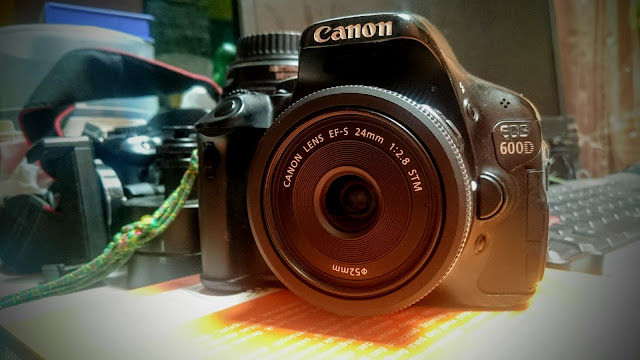Going camping in the mountains for three days and two nights sounds like an exciting adventure! Packing the right equipment is crucial to ensure you have a safe and enjoyable experience. Here's a list of essential items you should consider packing in your carrier bag:
 |
| Bare minimum camping equipment. |
Shelter and Sleeping:
- Tent: A lightweight and weather-resistant tent suitable for the mountain environment.
- Sleeping Bag: Choose a sleeping bag with an appropriate temperature rating for the expected weather conditions.
- Sleeping Pad: Provides insulation and comfort while sleeping on the ground.
Clothing:
- Layered Clothing: Pack moisture-wicking base layers, insulating mid-layers, and a waterproof outer layer.
- Warm Jacket: A down or synthetic insulated jacket to keep you warm during chilly nights.
- Hiking Boots: Sturdy and comfortable boots with good ankle support.
- Hiking Socks: Moisture-wicking and cushioned socks to prevent blisters.
- Hat and Gloves: Protect against sun, wind, and cold temperatures.
Food and Cooking:
- Stove and Fuel: A lightweight camping stove and enough fuel for your meals.
- Cookware: A pot, pan, utensils, and a cup/mug for cooking and eating.
- Food: Pack lightweight and non-perishable options like dehydrated meals, trail mix, energy bars, and instant oatmeal.
Hydration:
- Water Bottles/Bladder: Carry enough water containers to stay hydrated throughout your trip.
- Water Filtration: A portable water filter or purification tablets in case you need to source water from natural sources.
Navigation and Safety:
- Map and Compass/GPS: Ensure you have navigation tools and know how to use them.
- First Aid Kit: Include essentials like bandages, antiseptic wipes, pain relievers, and any personal medications.
- Multi-tool or Knife: Useful for various tasks like food prep and gear repair.
- Headlamp/Flashlight: Provide hands-free illumination for navigating in the dark.
- Fire Starter: Waterproof matches or a reliable fire-starting tool.
Personal Items:
- Sun Protection: Sunscreen, sunglasses, and a hat to protect against UV rays.
- Toiletries: Toothbrush, toothpaste, biodegradable soap, and toilet paper.
- Personal Identification: ID, emergency contact information, and any necessary permits.
- Camera/Notebook: Capture memories or jot down thoughts during your adventure.
Miscellaneous:
- Trash Bags: Pack out all your trash and leave no trace.
- Ziploc Bags: Useful for organizing small items and keeping them dry.
- Repair Kit: Duct tape, patch kits for your gear, and sewing materials.
- Camping Chair or Mat: Provides comfort around the campfire.
Remember that the specific items you need might vary depending on the location, weather, and personal preferences. Prioritize lightweight and compact gear to make your journey more manageable. Always check the weather forecast and local regulations before heading out. It's also a good idea to inform someone about your trip plans and expected return date for safety purposes.










Comments
Post a Comment